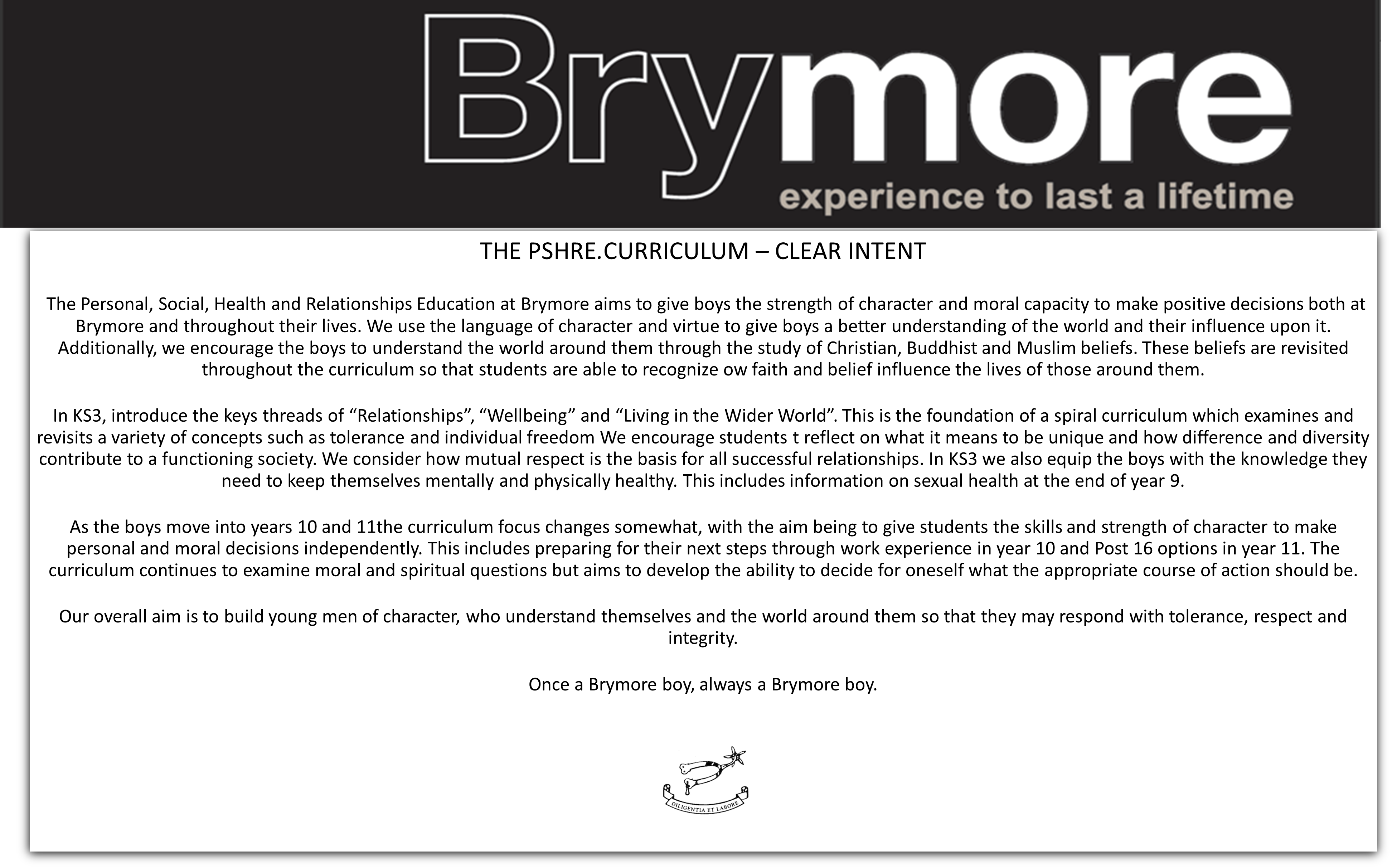PSHRE at Brymore is embedded throughout the curriculum and beyond. Boys learn interview skills as part of the process of becoming a prefect, part of the School Council or a Head of Department; they learn leadership skills and teamwork as they complete farm and garden duties; they learn relationship skills as they act as mentors to one another, as lead learners and as representatives of their house in various sporting and social events. They learn communication as they show visitors around the school and help with events such as Open Day. Many of the things that embody a “Brymore Boy” are taught outside the classroom, but we still believe it is important to give boys positive attitudes and a strong moral framework upon which to base their life decisions.
PSHRE is taught in four main strands detailed in the Curriculum Map:
-Sex and Relationships. This is taught from year 7 onwards. We begin by looking at friendships and bullying and gradually develop this into an understanding of intimate relationships, including sexual health, contraception and the law. However, we firmly believe that boys should be given the tools they need to create strong relationships based on respect for themselves and for others. This education is taught at a level that coincides with each boy’s age and ability and is based on the Secretary of State for Education’s Sex and Relationship Education Guidance. We also give detailed guidance on online safety, cyber bullying and the risks associated with various online and social media platforms.
-Life Skills. All boys are encouraged to develop good habits and to care for themselves physically, mentally and financially. Our life skills programme includes personal health and hygiene, guidance on the drugs and alcohol and advice on healthy eating. Yet it is much broader than that. Boys look at financial planning, budgeting and how their career choices might impact on their financial health later in life. We spend time exploring ways in which we can protect out mental health. This includes stress management, time management, study skills and revision techniques.
-Critical and Moral Thinking. We teach critical and moral thinking as both a secular skill and also as part of our religious education programme. Boys are taught about each of the major faiths in the world, with a strong emphasis on Christianity and Islam. We give detailed attention to prejudice and discrimination, war and conflict and family life. This is based on the short course religious studies GCSE specification. We encourage boys to look critically at the media, especially online news, and equip them to make informed decisions about their beliefs and actions. As part of this strand we ensure boys understand democracy and how political systems work in the UK.
-Careers. This is embedded throughout the curriculum, with all teachers discussing the various avenues open to the boys. In KS3 we give advice about subject choices for GCSE and encourage boys to study as wide a range of subjects as possible. In KS4 we begin a programme of visits and visitors to help the boys decide what they would like to do upon leaving Brymore. This includes visits to local colleges, National Trust properties, and local businesses. We run a “Goals and Aspirations” event in May of each year where boys can meet representatives of major employers, various colleges and members of the Armed Forces. The Armed Forces also come in and run some activity sessions, as do the National Citizenship Service.
A key part of our careers programme is work experience. All boys complete a work experience placement during year 10, with some boys choosing to do a second placement during their summer break. Preparation for this means that all boys will create a CV, write a letter of application, complete an Employer Agreement form (employer must complete their section) and compose their personal statement. These are then reviewed in year 11 as the boys make applications for colleges and apprenticeships.
Teacher – Mrs Briggs




